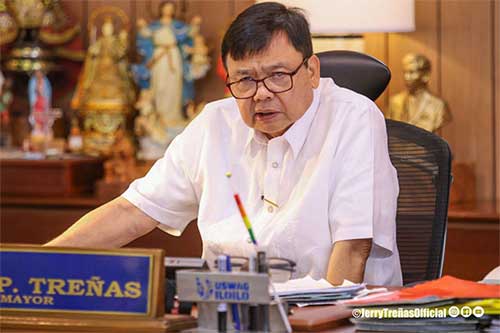By Dolly Yasa
BACOLOD City – The National Police Commission (Napolcom) has ordered the Philippine National Police to implement the dismissal of six police officers who used to be assigned to Moises Padilla Police Station in Negros Occidental.
In his order to PMaj. Gen. Hermenio Tadeo Jr, chief of the PNP Directorate for Personnel and Records Management, Napolcom Commissioner Chito Bustonera said the Commission found the following respondents culpable for grave misconduct and grave irregularities in the performance of duty:
-Police Capt. Allan Javelosa Reloj;
-Police Master Sgt. Ricardo Campos Digcong Jr.;
-Police Corporals Nobel Lodrico Perante and Felix Corejado Pesales Jr,; and
-Patrolmen Michael Eboseo Mondido and Darry Ducay Dormido.
The six officers were meted the maximum penalty of dismissal from police service in view of the presence of the aggravating circumstance of being found guilty of two or more charges, or counts.
The complaints against Reloj, former police chief of Moises Padilla, and five other town police personnel was filed by Felix Mathias Segundo Feria Yulo, husband of incumbent Moises Padilla Mayor Ella Celestina Garcia-Yulo.
“Accordingly, the accessory penalties of cancellation of their police eligibilities, forfeiture of retirement benefits, except accrued leave credits, and perpetual disqualification from holding public office are likewise imposed,” the Napolcom order added.
The dismissal of the six policemen stemmed from the complaints filed by Garcia-Yulo, then the vice mayor of Moises Padilla, and her husband Felix Mathias Segundo Feria Yulo III, who accused them of conducting an illegal checkpoint, performing an unlawful arrest, and illegal search and seizure on their vehicle on Dec. 19, 2017, along Brgy. Crossing Magallon, Moises Padilla.
In its Oct. 21, 2020 decision, the Napolcom said “it was established, based on records, that the area where the checkpoint was placed, was not well-lighted, and that no signage bearing the name of the PNP unit, and the participating organizations were visibly displayed.”
“The search performed by respondents upon complainants was unlawful because, aside from the POP (Police Operational Procedure) violations they committed, the former failed to prove that the area where the checkpoint was placed was within their immediate control,” the Napolcom order said.
“The items seized from the vehicle of the complainants are inadmissible as evidence because they were products of an illegal, warrantless search and seizure, otherwise known as the exclusionary rule, or the fruit of the poisonous tree doctrine,” it added.
The testimonies of the complainants and their witnesses were clear and straightforward, narrating in detail the act done by respondents, thus accorded greater weight as opposed to the defense of alibi and denial of respondents, the Napolcom said.
“From the foregoing facts and pieces of evidence presented, the Commission rules that the prosecution was able to prove, by substantial evidence, the culpability of the respondents, who all acted in conspiracy in conducting the illegal/improper checkpoint upon the complainants’ vehicle and the seizure of their properties.”
The Napolcom has required the PNP to inform them if the order was already implemented.






















